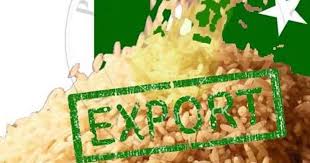
BEIJING, Apr. 17 (INP): Pakistan’s rice exports set to reach a record high in recent year on good crop output, Gwadar Pro reported on Wednesday quoting Chela Kewlani, chairman, Rice Exporters Association of Pakistan.
In terms of value, rice exports in seven months of the fiscal year have already reached what the country achieved in the last financial year.
Pakistan’s rice exports soared owing to a good crop size and a jump in prices, with shipments expected to exceed 5 million ton for the first time in history, said Kewlani.
And on the basis of the latest report from the United States Department of Agriculture, Pakistan’s rice exports in 2023/24 are expected to reach a record 5.5 million tons, a significant increase of 46.3% from the previous year’s 3.76 million tons.
“As per estimated, Pakistan will produce some 9 million metric tons of rice during the year and this will help to export more commodity,” noted Rafique Suleman, Convenor FPCCI Standing Committee on rice.
“We could expect the volume to reverse decline last year.” The country’s rice exports will not only be higher than previous year but likely to touch an all-time high level, Suleman indicated.
Thanks to the expansion of planting area and the improvement of technology, growers will be the direct beneficiaries of the export expansion.
“As compared with last year, the price of rice has increased by 25% to 30%, which has helped the country earn more of foreign exchange through shipments of the commodity,” said Kewlani.
Global rice prices are up because of an export ban imposed by the Indian government in a bid to curb inflation, with the country’s market share previously around 40%, said a commodity expert.
Taking this golden opportunity, Pakistan’s rice exports have been shifting to new markets by actively marketing to more distant countries and regions.
On the basis of relying on core markets, Pakistani rice has expanded into several new markets in Southeast Asia and the Western Hemisphere.
Basmati rice exports fetched on an average USD 1,146/ ton compared with USD 1,044/ton last year while non-basmati on an average fetched around USD 567/ton whereas last year it worked out to be USD 449/ton, Hamid Malik, a commodity expert, said.
Pakistan’s rice export to China in 2022 surpassed USD 455 million with a volume of more than one million tonnes, for the first time between China-Pakistan rice trade, said Ghulam Qadir Commercial Counsellor.
And Chinese traders are also looking forward to seizing the chance to gain a greater share of Pakistani rice in the domestic market.
“We started importing Pakistani rice in 2018, with the annual import volume has been stable at more than 200,000 tons in recent years. Both basmati and non-basmati rice are within our scope.
In China, basmati is used as a kind of high-end rice, mainly for Southeast Asia and South Asia restaurants.
This long-grain rice, which has a chewier taste, requires less water when cooking. It is suitable for making baked rice and hand-picked rice,” Ding Yong, East China Regional Manager, Shenzhen Vintop Import and Export Co., Ltd. told Gwadar Pro.
“More Chinese should be promoted to learn about basmati rice, to my way of thinking, which will be of great help to stimulate the export of Pakistani rice.
Basmati rice is a business card of Pakistan, thus more publicity on local customs will be of great benefit to expanding the domestic market,” Ding added.
INP/javed































































































